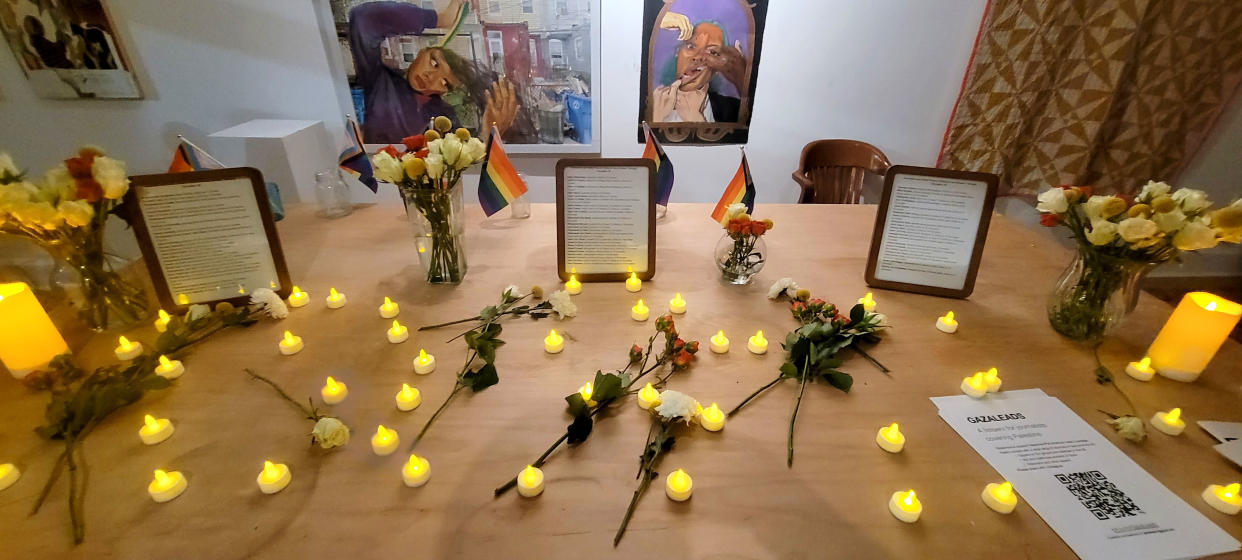Baltimore vigil honors journalists killed in Gaza: ‘They will never silence us’

BALTIMORE — The names of 68 journalists killed in Gaza took 4 minutes and 17 seconds to read Wednesday night in Baltimore.
“When one journalist isn’t safe no journalist is safe,” said Lisa Snowden, editor-in-chief of the Baltimore Beat and organizer of the vigil for journalists at NoMüNoMü artist collective in Mount Vernon. “At a time where a lot of so-called journalists aren’t doing their jobs, the Palestinian journalists we are remembering tonight not only did their jobs but they put their lives on the line to do them. I am incredibly grateful for their sacrifices and I’m inspired by their commitment.”
At least 68 journalists and media workers — 61 Palestinian, four Israeli and three Lebanese — have been killed during the conflict, according to the Committee to Protect Journalists. That’s more in two-plus months than the 63 journalists killed during the 20-year Vietnam War, according to Reporters Without Borders. Since Feb. 24, 2022, 15 journalists have been killed covering the conflict between Russia and Ukraine, according to the International Federation of Journalists.
Most of the deaths in the current war have resulted from Israel’s bombardment of the Gaza Strip, according to the federation. Fighting started when the terrorist group Hamas attacked Israel on Oct. 7.
“In a war, you know, a classical war, I can say that in Syria, in Iraq, in ex-Yugoslavia, we didn’t see this kind of massacre,” Anthony Bellanger, the general secretary of the International Federation of Journalists, told the Associated Press.
Additionally, three journalists have been injured, three are missing and 20 have been arrested, according to the Committee to Protect Journalists. Last week, an Israeli drone strike on a school killed Abu Daqqa, a Palestinian cameraman for the TV network Al Jazeera.
Snowden and other speakers said the list of journalists killed by Israeli bombs and forces is growing.
“(Palestinian journalists) have been the proof, the truth of a population, a homeland and a civilization being disappeared from Gaza, and one by one, Israel is closing those eyes for good,” Maximillian Alvarez, editor-in-chief of The Real News Network, said during the vigil. “We know why they’re doing it. They don’t want us to see what they’re doing. They don’t want us to see what they hope we just forget.”
During the vigil, speakers shared prayers in English and Arabic and poems, including “If I Must Die” by Refaat Alareer, a Palestinian poet and activist, who was killed along with his brother, sister and her four children by an Israeli strike on their house Dec. 7.
“No matter how much they try, they will never silence us. Their atrocities will never be forgotten,” Ahmed Tarik, who helped read the names of the dead journalists, said during the vigil.
_____

